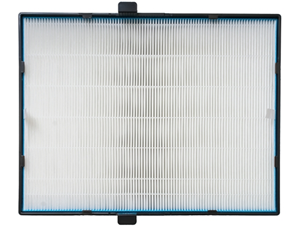 Air conditioning is an important part of any modern home, and air filters are vital to the proper functioning of AC systems. While there are many different kinds of air filters on the market, most people don’t know what makes a good filter. Knowing what to look for when shopping for air filters will help you choose the right one for your home.
Air conditioning is an important part of any modern home, and air filters are vital to the proper functioning of AC systems. While there are many different kinds of air filters on the market, most people don’t know what makes a good filter. Knowing what to look for when shopping for air filters will help you choose the right one for your home.
The Various Types Of Air Filters
Contents
Most people generally don’t understand the difference between high-quality air filters and their cheaper alternatives. Mechanical air filters are used for residential air conditioning systems. These trap debris, particulate matter and dust using synthetic fibers.
The minimum efficiency reporting value (MERV) is widely used in rating filters according to their efficiency. This is a scale that runs from 1 to 16, with higher ratings denoting superior quality. Basically, the system measures the porousness of a particular filter when handling particles measuring between 0.3 and 10 micrometers.
Residential Air Filters Include:
- Fiberglass filters: These have a flat, thin panel for trapping particles from air. Designed to protect HVAC equipment, these filters can’t remove the tiny, harmful contaminants that affect human health. Disposable fiberglass filters are usually cheap, and their MERV rating falls between 1 and 4.
- Pleated filters: These are made of polyester or paper. Their MERV rating falls between 5 and 8. While they’re significantly more expensive than their fiberglass counterparts, they do a better job at filtering. These filters can block tiny particles including pollen, dust, mold spores, lint and pet dander. You can also find pleated filters of higher quality with a MERV rating of 9-13. What really sets them apart from their cheaper counterparts is their ability to capture more airborne particles without affecting airflow. The filters have more pleats per foot to increase efficiency, and can keep out up to 45% of air pollutants from getting into your home.
- High efficiency filters: These have a MERV rating of between 14 and 16. These look similar to true HEPA filters, which is probably why most people tend to confuse the two. High efficiency filters can remove up to 85% of all air pollutants. While they can trap very small particles of mold, dust and pollen, they’re not ideal for residential use.
How Air Filter Efficiency Affects Indoor Air Quality
 Filtration is a key determinant of indoor air quality. Effective air filtration provides the primary defense for HVAC systems and their owners against pollutants present in the air. Filtration efficiency defines how well a filter purifies indoor air by getting rid of airborne particles of various sizes.
Filtration is a key determinant of indoor air quality. Effective air filtration provides the primary defense for HVAC systems and their owners against pollutants present in the air. Filtration efficiency defines how well a filter purifies indoor air by getting rid of airborne particles of various sizes.
In one particular filter test standard, efficiency is analyzed by evaluating performance at 3 different particle size ranges (0.3-1 micron, 1-3 microns and 3-10 microns). A MERV value is assigned on the filter’s efficiency. A MERV rating of 5 is the least efficient, while a value of 16 is the most efficient. Recent studies suggest that a minimum MERV 9 filter would be sufficient to keep out auto emissions, mold spores and other pollutants that could affect health, while at the same time allowing efficient HVAC system operation.
Don’t Forget To Replace Your Air Filters
While most homeowners know that HVAC air filters need to be replaced regularly, a good number of them still put off this task or ignore it altogether. Learning how dirty filters affect air conditioners will help you know why you should replace them more often. Some of the ways in which a clogged filter affects a HVAC unit include:
- Increased energy consumption: Air filters get clogged by debris. This, in turn, affects the flow of incoming air. For this reason, the fan motor has to work harder to compensate for the blockage. Because this uses up more energy, your utility bills will inevitably rise.
- Overheating: The fan motor could burn out as it struggles to handle the extra load created by the blockage. This in turn causes overheating and, eventually, failure of the entire system.
- Damage to the heat exchanger: when heat accumulates around the heat exchanger, the device could crack. A cracked heat exchanger raises the risk of fire, total system failure, as well as the release of carbon monoxide into the home.
For maximum efficiency, air filters need to be changed at least once every month. This is especially true in the hotter seasons, when you’re likely to be using your air conditioner round the clock. If your thermostat doesn’t have a feature to inform you when the filter needs changing, simply set a reminder on your phone.
High Efficiency Air Conditioning Air Filters
While they’re more expensive, high efficiency air filters offer a host of benefits. They even cut down on energy use. They also don’t demand as much maintenance as their cheaper counterparts. While cost is an important consideration when shopping, you’ll save more money in the long run when you invest in a quality air filter.
Learn How High Efficiency Air Conditioning Works
PFO Heating & Air Conditioning specializes in maintenance, repair, and installations of all makes and models of air conditioning systems. Our NATE-certified technicians have the skills, knowledge, and experience to find the best air conditioning system solutions to meet your needs. We are also capable of making your home more energy efficient to cut down on your cooling costs. We are among the few providers in NJ to hold a Carrier Presidents Award Dealer distinction. Be sure to call us and speak with one of our comfort specialists today if you have any questions.
Contact us now at (800) 253-9001 to find out more!



